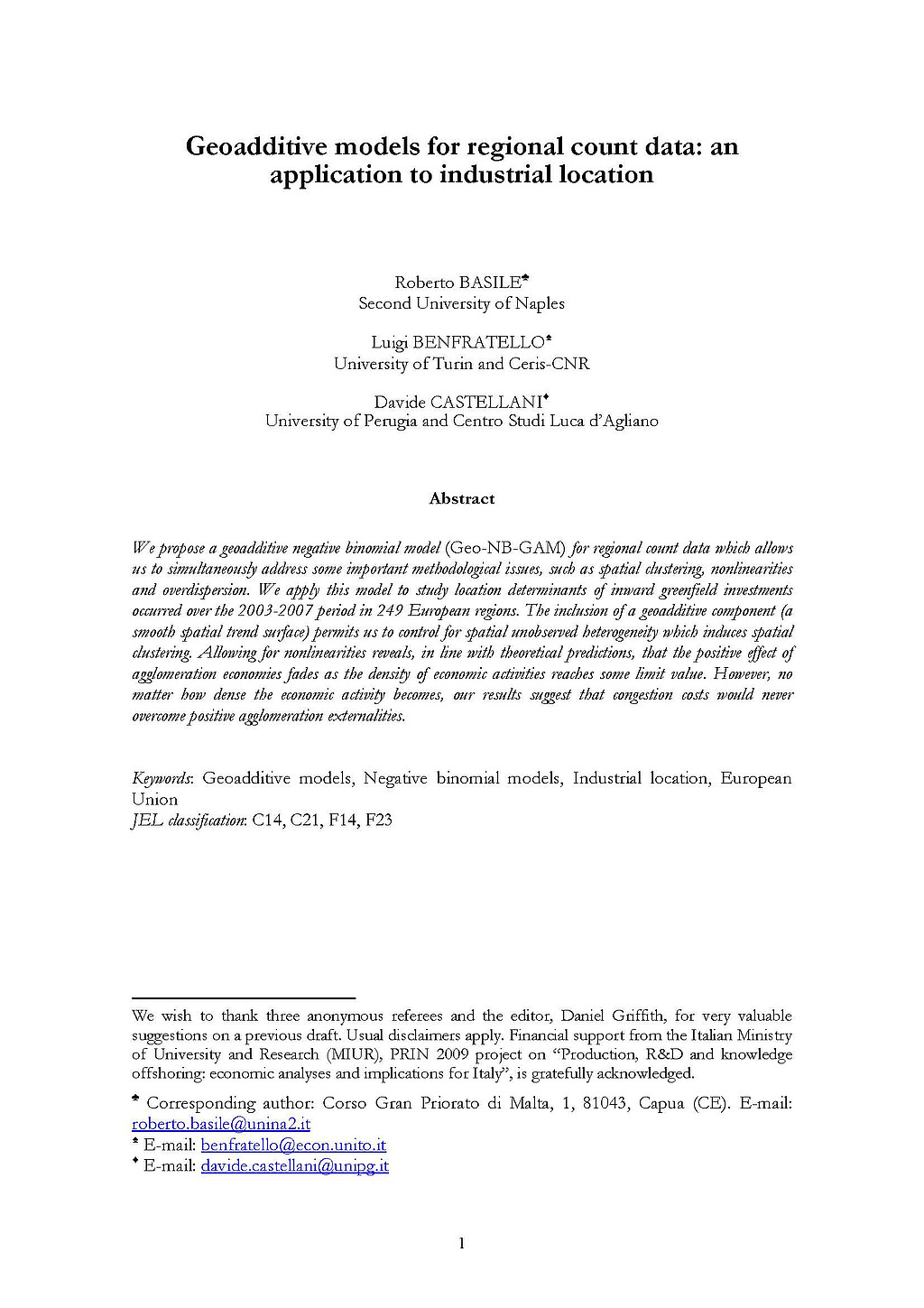
Geoadditive Models for Regional Count Data: An Application to Industrial Location
We propose a geoadditive negative binomial model (Geo-NB-GAM) for regional count data which allows us to simultaneously address some important methodological issues, such as spatial clustering, nonlinearities and overdispersion. We apply this model to study location determinants of inward greenfield investments occurred over the 2003-2007 period in 249 European regions. The inclusion of a geoadditive component (a smooth spatial trend surface) permits us to control for spatial unobserved heterogeneity which induces spatial clustering. Allowing for nonlinearities reveals, in line with theoretical predictions, that the positive effect of agglomeration economies fades as the density of economic activities reaches some limit value. However, no matter how dense the economic activity becomes, our results suggest that congestion costs would never overcome positive agglomeration externalities.




